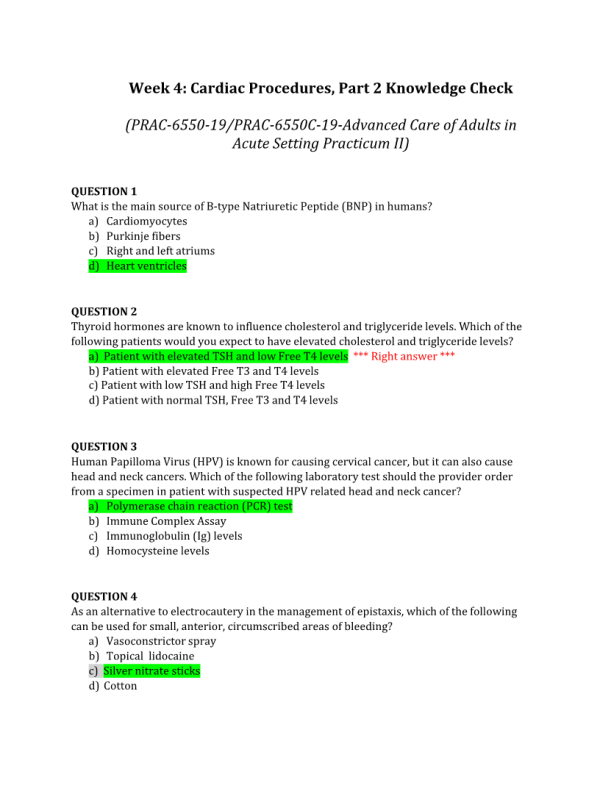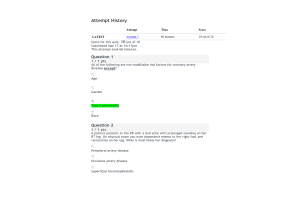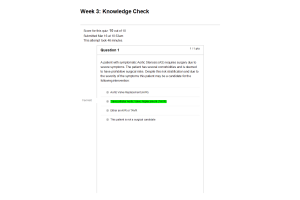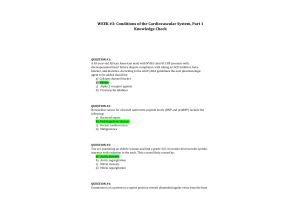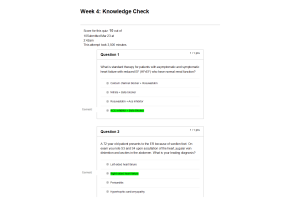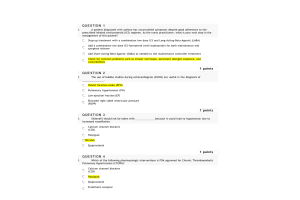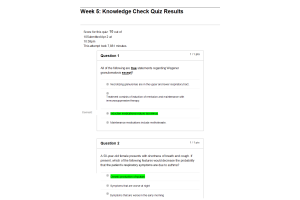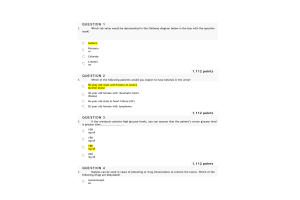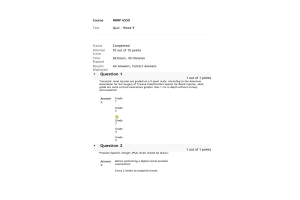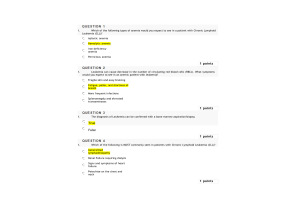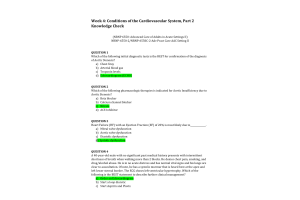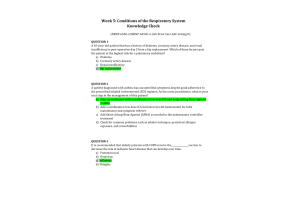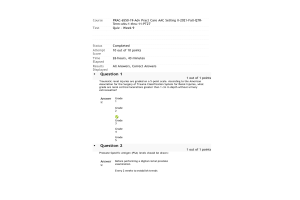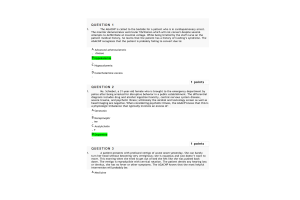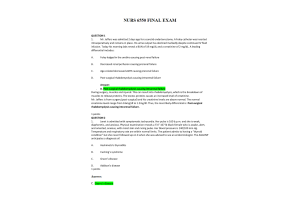PRAC 6550-19 Week 4 Knowledge Check; Cardiac Procedures, Part 2 (Grade; 10 out of 10)
- $10.00
- Question: What is the main source of B-type Natriuretic Peptide (BNP) in humans?
- Question: Thyroid hormones are known to influence cholesterol and triglyceride levels. Which of the following patients would you expect to have elevated cholesterol and triglyceride levels?
- Question: Human Papilloma Virus (HPV) is known for causing cervical cancer, but it can also cause head and neck cancers. Which of the following laboratory test should the provider order from a specimen in patient with suspected HPV related head and neck cancer?
- Question: As an alternative to electrocautery in the management of epistaxis, which of the following can be used for small, anterior, circumscribed areas of bleeding?
- Question: Waveform capnography can be used to monitor ventilated patients and assess the effectiveness of CPR. The following is an example of a normal capnography waveform:
- Question: Beck’s triad can be used to diagnose a severe pericardial tamponade. Beck’s triad consists of:
- Question: Absolute contraindications for performing bedside ultrasound include:
- Question: Removal of more medial foreign bodies from the ear can be very painful and anesthesia is usually required. Which of the following is the preferred anesthetic for removal of a foreign body from the ear canal?
- Question: On ultrasound, objects that are dense and have very little fluid (such as bones), reflect all the sound waves back and appear on-screen as white images. What term is used to describe these dense objects on ultrasound?
- Question: How often should serum troponins be sent in a patient with a suspected acute myocardial infarction (MI)?
